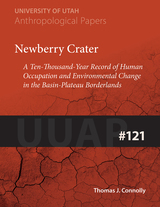26 start with O start with O
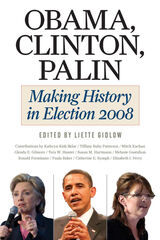
Election 2008 made American history, but it was also the product of American history. Barack Obama, Hillary Clinton, and Sarah Palin smashed through some of the most enduring barriers to high political office, but their exceptional candidacies did not come out of nowhere. In these timely and accessible essays, a distinguished group of historians explores how the candidates both challenged and reinforced historic stereotypes of race and sex while echoing familiar themes in American politics and exploiting new digital technologies.
Contributors include Kathryn Kish Sklar on Clinton’s gender masquerade; Tiffany Ruby Patterson on the politics of black anger; Mitch Kachun on Michelle Obama and stereotypes about black women’s bodies; Glenda E. Gilmore on black women’s century of effort to expand political opportunities for African Americans; Tera W. Hunter on the lost legacy of Shirley Chisholm; Susan M. Hartmann on why the U.S. has not yet followed western democracies in electing a female head of state; Melanie Gustafson on Palin and the political traditions of the American West; Ronald Formisano on the populist resurgence in 2008; Paula Baker on how digital technologies threaten the secret ballot; Catherine E. Rymph on Palin’s distinctive brand of political feminism; and Elisabeth I. Perry on the new look of American leadership.
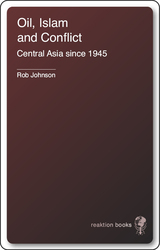
Johnson examines the problems that have plagued the region, including civil wars in Afghanistan and Tajikistan and burgeoning Islamist terrorist movements in several nations. He explains the complex role played by narcotics, ethnic tensions, and the potential wealth from oil and gas reserves in the region’s political maneuverings, and delineates the complex links between civil violence and the policies of Central Asian governments on such crucial issues as human rights, economic development and energy.
A timely investigation, Oil, Islam and Conflict will be required reading for all those invested in the threat of terrorism and the future of energy security.
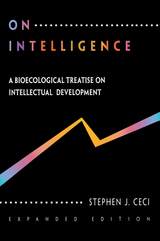
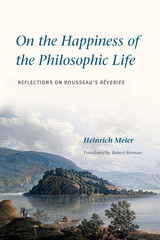
The first part of On the Happiness of the Philosophic Life approaches the Rêveries not as another autobiographical text in the tradition of the Confessions and the Dialogues, but as a reflection on the philosophic life and the distinctive happiness it provides. The second turns to a detailed analysis of a work referred to in the Rêveries, the “Profession of Faith of the Savoyard Vicar,” which triggered Rousseau’s political persecution when it was originally published as part of Émile. In his examination of this most controversial of Rousseau’s writings, which aims to lay the foundations for a successful nonphilosophic life, Meier brings to light the differences between natural religion as expressed by the Vicar and Rousseau’s natural theology. Together, the two reciprocally illuminating parts of this study provide an indispensable guide to Rousseau and to the understanding of the nature of the philosophic life.
“[A] dense but precise and enthralling analysis.”—New Yorker

The statesman on statecraft.
Cicero (Marcus Tullius, 106–43 BC), Roman lawyer, orator, politician, and philosopher, of whom we know more than of any other Roman, lived through the stirring era that saw the rise, dictatorship, and death of Julius Caesar in a tottering republic. In his political speeches especially and in his correspondence we see the excitement, tension, and intrigue of politics and the part he played in the turmoil of the time. Of about 106 speeches, delivered before the Roman people or the Senate if they were political, before jurors if judicial, fifty-eight survive (a few of them incompletely). In the fourteenth century Petrarch and other Italian humanists discovered manuscripts containing more than 900 letters of which more than 800 were written by Cicero and nearly 100 by others to him. These afford a revelation of the man all the more striking because most were not written for publication. Six rhetorical works survive and another in fragments. Philosophical works include seven extant major compositions and a number of others; and some lost. There is also poetry, some original, some as translations from the Greek.
The Loeb Classical Library edition of Cicero is in twenty-nine volumes.
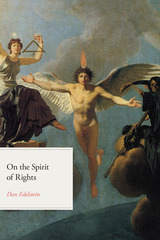
In On the Spirit of Rights, Dan Edelstein answers this question by examining the complex genealogy of the rights that regimes enshrined in the American and French Revolutions. With a lively attention to detail, he surveys a sprawling series of debates among rulers, jurists, philosophers, political reformers, writers, and others who were all engaged in laying the groundwork for our contemporary systems of constitutional governance. Every seemingly new claim about rights turns out to be a variation on a theme, as late medieval notions were subtly repeated and refined to yield the talk of “rights” we recognize today. From the Wars of Religion to the French Declaration of the Rights of Man and of the Citizen to the 1948 Universal Declaration of Human Rights, On the Spirit of Rights is a sweeping tour through centuries of European intellectual history and an essential guide to our ways of thinking about human rights today.
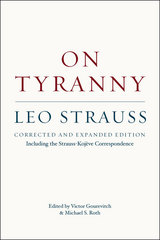

On Violence is divided into five sections. Underscoring the connection between violence and economic world orders, the first section explores the dialectical relationship between domination and subordination. The second section brings together pieces by political actors who spoke about the tension between violence and nonviolence—Gandhi, Hitler, and Malcolm X—and by critics who have commented on that tension. The third grouping examines institutional faces of violence—familial, legal, and religious—while the fourth reflects on state violence. With a focus on issues of representation, the final section includes pieces on the relationship between violence and art, stories, and the media. The editors’ introduction to each section highlights the significant theoretical points raised and the interconnections between the essays. Brief introductions to individual selections provide information about the authors and their particular contributions to theories of violence.
With selections by: Hannah Arendt, Walter Benjamin, Osama bin Laden, Pierre Bourdieu, André Breton, James Cone, Robert M. Cover, Gilles Deleuze, Friedrich Engels, Frantz Fanon, Michel Foucault, Sigmund Freud, Mohandas Gandhi, René Girard, Linda Gordon, Antonio Gramsci, Félix Guattari, G. W. F. Hegel, Adolf Hitler, Thomas Hobbes, Bruce B. Lawrence, Elliott Leyton, Catharine MacKinnon, Malcolm X, Dorothy Martin, Karl Marx, Chandra Muzaffar, James C. Scott, Kristine Stiles, Michael Taussig, Leon Trotsky, Simone Weil, Sharon Welch, Raymond Williams


With enormous numbers of new immigrants, America is becoming dramatically more diverse racially, culturally, and ethnically. As a result, the United States faces questions that have profound consequences for its future. What does it mean to be an American? Is a new American identity developing? At the same time, the coherence of national culture has been challenged by the expansion of—and attacks on—individual and group rights, and by political leaders who prefer to finesse rather than engage cultural controversies. Many of the ideals on which the country was founded are under intense, often angry, debate, and the historic tension between individuality and community has never been felt so keenly.
In One America?, distinguished contributors discuss the role of national leadership, especially the presidency, at a time when a fragmented and dysfunctional national identity has become a real possibility. Holding political views that encompass the thoughtful left and right of center, they address fundamental issues such as affirmative action, presidential engagement in questions of race, dual citizenship, interracial relationships, and English as the basic language.
This book is the first examination of the role of national political leaders in maintaining or dissipating America’s national identity. It will be vital reading for political scientists, historians, policymakers, students, and anyone concerned with the future of American politics and society.
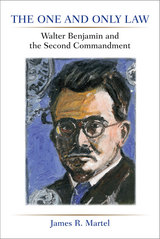
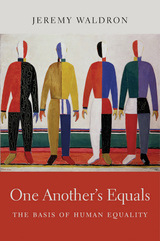
An enduring theme of Western philosophy is that we are all one another’s equals. Yet the principle of basic equality is woefully under-explored in modern moral and political philosophy. In a major new work, Jeremy Waldron attempts to remedy that shortfall with a subtle and multifaceted account of the basis for the West’s commitment to human equality.
What does it mean to say we are all one another’s equals? Is this supposed to distinguish humans from other animals? What is human equality based on? Is it a religious idea, or a matter of human rights? Is there some essential feature that all human beings have in common? Waldron argues that there is no single characteristic that serves as the basis of equality. He says the case for moral equality rests on four capacities that all humans have the potential to possess in some degree: reason, autonomy, moral agency, and the ability to love. But how should we regard the differences that people display on these various dimensions? And what are we to say about those who suffer from profound disability—people whose claim to humanity seems to outstrip any particular capacities they have along these lines?
Waldron, who has worked on the nature of equality for many years, confronts these questions and others fully and unflinchingly. Based on the Gifford Lectures that he delivered at the University of Edinburgh in 2015, One Another’s Equals takes Waldron’s thinking further and deeper than ever before.
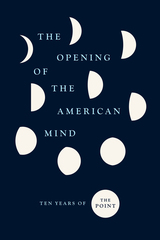
Featuring award-winning and highly acclaimed essays from The Point’s first ten years, The Opening of the American Mind traces the path of American intellect from the magazine’s inception in 2009, when Barack Obama was ascending the steps of the White House, to the brink of the 2020 election. The essays, chosen both for the way they capture their time and transcend it, are assembled into five sections that address cycles of cultural frustrations, social movements, and the aftermath of the 2016 election, and provide lively, forward-looking considerations of how we might expand our imaginations into the future. Spanning the era of Obama and Trump, Occupy Wall Street and Black Lives Matter, #MeToo and renewed attention to reparations, this anthology offers critical reflections on some of the decade’s most influential events and stands as a testament to the significance of open exchange. The intellectual dialogue provided by The Point has never been more urgently needed, and this collection will bring the magazine’s vital work to an even broader readership.
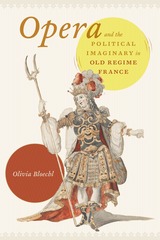
In Opera and the Political Imaginary in Old Regime France, however, Olivia Bloechl reveals another layer of French opera’s political theater. The make-believe worlds on stage, she shows, involved not just fantasies of sovereign rule but also aspects of government. Plot conflicts over public conduct, morality, security, and law thus appear side-by-side with tableaus hailing glorious majesty. What’s more, opera’s creators dispersed sovereign-like dignity and powers well beyond the genre’s larger-than-life rulers and gods, to its lovers, magicians, and artists. This speaks to the genre’s distinctive combination of a theological political vocabulary with a concern for mundane human capacities, which is explored here for the first time.
By looking at the political relations among opera characters and choruses in recurring scenes of mourning, confession, punishment, and pardoning, we can glimpse a collective political experience underlying, and sometimes working against, ancienrégime absolutism. Through this lens, French opera of the period emerges as a deeply conservative, yet also more politically nuanced, genre than previously thought.
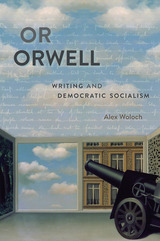
There have been many studies of George Orwell’s life and work, but nothing quite like this book by Alex Woloch—an exuberant, revisionary account of Orwell’s writing.
“Good prose is like a window-pane,” Orwell famously avers. But what kind of literary criticism is possible, face-to-face with Orwell’s plain-style prose? Too often this style has been either dismissed by a seemingly more savvy critical theory, or held up as a reprimand against the enterprise of theory. In a series of unusually close and intensive readings—focused on the unstable event of writing itself—Woloch recovers the radical and experimental energies of Orwell’s prose. Against accounts that would quickly naturalize Orwell’s truthfulness or reduce his window-pane prose to bad faith, Woloch’s study bears down on a propulsive irony and formal restlessness that have always been intertwined with Orwell’s plain-style. Such restlessness, far from diluting Orwell’s democratic and socialist politics, is at its aesthetic and conceptual core.
The first half of Or Orwell ranges across his nonfiction prose, including new readings of “A Hanging,” The Road to Wigan Pier, and Inside the Whale. The second half develops an extended analysis of a single writing project: Orwell’s eighty “As I Please” newspaper columns, written for the Socialist weekly Tribune. Moving through multiple forms and genres, testing the limits of each, Orwell emerges in Woloch’s fine-grained account as a boldly unconventional writer and a central figure in twentieth-century literature and political thought.
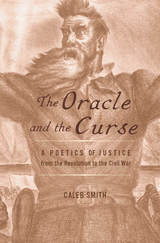
Condemned to hang after his raid on Harper’s Ferry, John Brown prophesied that the crimes of a slave-holding land would be purged away only with blood. A study of omens, maledictions, and inspired invocations, The Oracle and the Curse examines how utterances such as Brown’s shaped American literature between the Revolution and the Civil War.
In nineteenth-century criminal trials, judges played the role of law’s living oracles, but offenders were also given an opportunity to address the public. When the accused began to turn the tables on their judges, they did so not through rational arguments but by calling down a divine retribution. Widely circulated in newspapers and pamphlets, these curses appeared to channel an otherworldly power, condemning an unjust legal system and summoning readers to the side of righteousness.
Exploring the modes of address that communicated the authority of law and the dictates of conscience in antebellum America’s court of public opinion, Caleb Smith offers a new poetics of justice which assesses the nonrational influence that these printed confessions, trial reports, and martyr narratives exerted on their first audiences. Smith shows how writers portrayed struggles for justice as clashes between human law and higher authority, giving voice to a moral protest that transformed American literature.
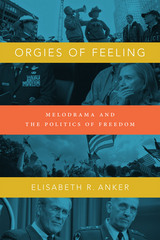

A Federalist Notable Book
“An important contribution to our understanding of the 14th Amendment.”
—Wall Street Journal
“By any standard an important contribution…A must-read.”
—National Review
“The most detailed legal history to date of the constitutional amendment that changed American law more than any before or since…The corpus of legal scholarship is richer for it.”
—Washington Examiner
Adopted in 1868, the Fourteenth Amendment profoundly changed the Constitution, giving the federal judiciary and Congress new powers to protect the fundamental rights of individuals from being violated by the states. Yet, the Supreme Court has long misunderstood or ignored the original meaning of its key Section I clauses.
Barnett and Bernick contend that the Fourteenth Amendment must be understood as the culmination of decades of debate about the meaning of the antebellum Constitution. In the course of this debate, antislavery advocates advanced arguments informed by natural rights, the Declaration of Independence, and the common law, as well as what is today called public-meaning originalism.
The authors show how these arguments and the principles of the Declaration in particular eventually came to modify the Constitution. They also propose workable doctrines for implementing the amendment’s key provisions covering the privileges and immunities of citizenship, due process, and equal protection under the law.
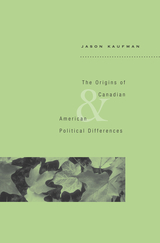
Why do the United States and Canada have such divergent political cultures when they share one of the closest economic and cultural relationships in the world? Canadians and Americans consistently disagree over issues such as the separation of church and state, the responsibility of government for the welfare of everyone, the relationship between federal and subnational government, and the right to marry a same-sex partner or to own an assault rifle.
In this wide-ranging work, Jason Kaufman examines the North American political landscape to draw out the essential historical factors that underlie the countries’ differences. He discusses the earliest European colonies in North America and the Canadian reluctance to join the American Revolution. He compares land grants and colonial governance; territorial expansion and relations with native peoples; immigration and voting rights. But the key lies in the evolution and enforcement of jurisdictional law, which illuminates the way social relations and state power developed in the two countries.
Written in an accessible and engaging style, this book will appeal to readers of sociology, politics, law, and history as well as to anyone interested in the relationship between the United States and Canada.

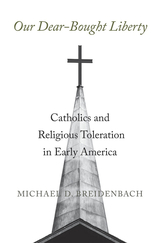
How early American Catholics justified secularism and overcame suspicions of disloyalty, transforming ideas of religious liberty in the process.
In colonial America, Catholics were presumed dangerous until proven loyal. Yet Catholics went on to sign the Declaration of Independence and helped to finalize the First Amendment to the Constitution. What explains this remarkable transformation? Michael Breidenbach shows how Catholic leaders emphasized their church’s own traditions—rather than Enlightenment liberalism—to secure the religious liberty that enabled their incorporation in American life.
Catholics responded to charges of disloyalty by denying papal infallibility and the pope’s authority to intervene in civil affairs. Rome staunchly rejected such dissent, but reform-minded Catholics justified their stance by looking to conciliarism, an intellectual tradition rooted in medieval Catholic thought yet compatible with a republican view of temporal independence and church–state separation. Drawing on new archival material, Breidenbach finds that early American Catholic leaders, including Maryland founder Cecil Calvert and members of the prominent Carroll family, relied on the conciliarist tradition to help institute religious toleration, including the Maryland Toleration Act of 1649.
The critical role of Catholics in establishing American church–state separation enjoins us to revise not only our sense of who the American founders were, but also our understanding of the sources of secularism. Church–state separation in America, generally understood as the product of a Protestant-driven Enlightenment, was in key respects derived from Catholic thinking. Our Dear-Bought Liberty therefore offers a dramatic departure from received wisdom, suggesting that religious liberty in America was not bestowed by liberal consensus but partly defined through the ingenuity of a persecuted minority.

Our Long Heritage was first published in 1955. Minnesota Archive Editions uses digital technology to make long-unavailable books once again accessible, and are published unaltered from the original University of Minnesota Press editions.
This collection of readings, selected from the books and documents that were the major sources of American ideas and beliefs during the period of the founding of the democracy from 1750 to 1780, demonstrates that America has a long heritage behind its social and political philosophy. The excerpts are from the works that represent four different cultural or historical heritage, and they are presented in this order: the classical heritage, the English tradition to 1700, the continental stream, and the eighteenth century, both British and American. Mr. Clough, a former professor of English at the University of Wyoming, provides introductory and explanatory comment throughout the volume. The first book of its kind, it should be particularly useful in American studies programs.
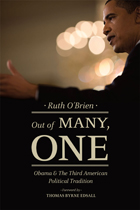
Bearing traces of Baruch Spinoza, John Dewey, and Saul Alinsky, Obama’s progressivism embraces the ideas of mutual reliance and collective responsibility, and adopts an interconnected view of the individual and the state. So, while Obama might emphasize difference, he rejects identity politics, which can create permanent minorities and diminish individual agency. Analyzing Obama’s major legislative victories—financial regulation, health care, and the stimulus package—O’Brien shows how they reflect a stakeholder society that neither regulates in the manner of the New Deal nor deregulates. Instead, Obama focuses on negotiated rule making and allows executive branch agencies to fill in the details when dealing with a deadlocked Congress. Similarly, his commitment to difference and his resistance to universal mandates underlies his reluctance to advocate for human rights as much as many on the Democratic left had hoped.
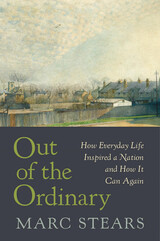
From a major British political thinker and activist, a passionate case that both the left and right have lost their faith in ordinary people and must learn to find it again.
This is an age of polarization. It’s us vs. them. The battle lines are clear, and compromise is surrender.
As Out of the Ordinary reminds us, we have been here before. From the 1920s to the 1950s, in a world transformed by revolution and war, extreme ideologies of left and right fueled utopian hopes and dystopian fears. In response, Marc Stears writes, a group of British writers, artists, photographers, and filmmakers showed a way out. These men and women, including J. B. Priestley, George Orwell, Barbara Jones, Dylan Thomas, Laurie Lee, and Bill Brandt, had no formal connection to one another. But they each worked to forge a politics that resisted the empty idealisms and totalizing abstractions of their time. Instead they were convinced that people going about their daily lives possess all the insight, virtue, and determination required to build a good society. In poems, novels, essays, films, paintings, and photographs, they gave witness to everyday people’s ability to overcome the supposedly insoluble contradictions between tradition and progress, patriotism and diversity, rights and duties, nationalism and internationalism, conservatism and radicalism. It was this humble vision that animated the great Festival of Britain in 1951 and put everyday citizens at the heart of a new vision of national regeneration.
A leading political theorist and a veteran of British politics, Stears writes with unusual passion and clarity about the achievements of these apostles of the ordinary. They helped Britain through an age of crisis. Their ideas might do so again, in the United Kingdom and beyond.
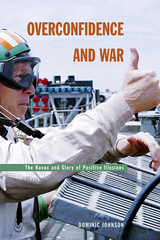
Opponents rarely go to war without thinking they can win--and clearly, one side must be wrong. This conundrum lies at the heart of the so-called "war puzzle": rational states should agree on their differences in power and thus not fight. But as Dominic Johnson argues in Overconfidence and War, states are no more rational than people, who are susceptible to exaggerated ideas of their own virtue, of their ability to control events, and of the future. By looking at this bias--called "positive illusions"--as it figures in evolutionary biology, psychology, and the politics of international conflict, this book offers compelling insights into why states wage war.
Johnson traces the effects of positive illusions on four turning points in twentieth-century history: two that erupted into war (World War I and Vietnam); and two that did not (the Munich crisis and the Cuban missile crisis). Examining the two wars, he shows how positive illusions have filtered into politics, causing leaders to overestimate themselves and underestimate their adversaries--and to resort to violence to settle a conflict against unreasonable odds. In the Munich and Cuban missile crises, he shows how lessening positive illusions may allow leaders to pursue peaceful solutions.
The human tendency toward overconfidence may have been favored by natural selection throughout our evolutionary history because of the advantages it conferred--heightening combat performance or improving one's ability to bluff an opponent. And yet, as this book suggests--and as the recent conflict in Iraq bears out--in the modern world the consequences of this evolutionary legacy are potentially deadly.

In the run-up to the 2003 invasion of Iraq, a fair number of Americans thought the idea was crazy. Now everyone, except a few die-hards, thinks it was. So what was going through the minds of the talented and experienced men and women who planned and initiated the war? What were their assumptions? Overreach aims to recover those presuppositions.
Michael MacDonald examines the standard hypotheses for the decision to attack, showing them to be either wrong or of secondary importance: the personality of President George W. Bush, including his relationship with his father; Republican electoral considerations; the oil lobby; the Israeli lobby. He also undermines the argument that the war failed because of the Bush administration’s incompetence.
The more fundamental reasons for the Iraq War and its failure, MacDonald argues, are located in basic axioms of American foreign policy, which equate America’s ideals with its interests (distorting both in the process) and project those ideals as universally applicable. Believing that democratic principles would bring order to Iraq naturally and spontaneously, regardless of the region’s history and culture or what Iraqis themselves wanted, neoconservative thinkers, with support from many on the left, advocated breaking the back of state power under Saddam Hussein. They maintained that by bringing about radical regime change, the United States was promoting liberalism, capitalism, and democracy in Iraq. But what it did instead was unleash chaos.
READERS
Browse our collection.
PUBLISHERS
See BiblioVault's publisher services.
STUDENT SERVICES
Files for college accessibility offices.
UChicago Accessibility Resources
home | accessibility | search | about | contact us
BiblioVault ® 2001 - 2024
The University of Chicago Press





